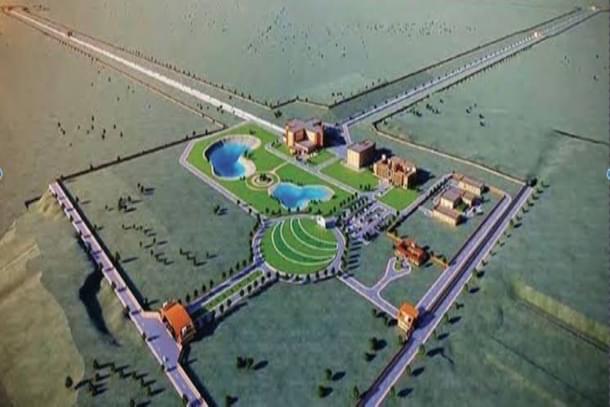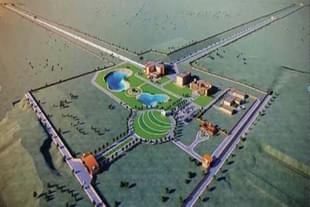Science
LIGO-India: Will It Shift The Centre Of Gravity Of Science To India?
Aravindan Neelakandan
Apr 09, 2023, 12:08 PM | Updated 12:08 PM IST
Save & read from anywhere!
Bookmark stories for easy access on any device or the Swarajya app.


On 26 March 2023, Indian Space Research Organization (ISRO)'s LVM3-M3 successfully took off and placed in the orbit 36 satellites of OneWeb, a London-based global communications network which has a network of 648 low-earth orbit (LEO) satellites.
The LVM3 is 43.5 m tall. It can take a payload of 8,000 kg to low earth orbit. And on 26 March, the 36 satellites of OneWeb weighed 5,805 kg.
On 2 April 2023 ISRO successfully tested a Reusable Launch Vehicle Autonomous Landing Mission (RLV LEX) at the Aeronautical Test Range (ATR) in Chitradurga, located in Karnataka.
Then on 6 April 2023, two important events happened:
A team at the Quantum Information and Computing (QuIC) Lab of the Raman Research Institute (RRI) has successfully demonstrated a secure channel of communication between a stationary source and a moving platform. (Here is the Swarajya report.)
Central government approved the construction of Laser Interferometer Gravitational Wave Observatory in India (LIGO-India). This is part of an international network and it will come up in Maharashtra. PM Narendra Modi government has approved the Rs 2,500 crore project.
All these are important events. India is slowly and steadily emerging as a science super power. It is not yet there as already one. It is far behind China. But very steadily it is getting there.
Doing science is not any more a passionate ethical pure quest for truth. Scientist-seers with renaissance values like Albert Einstein and Charles Darwin have become an endangered species.
Science has to bring visible material strategic technological successes. Science needs institutional support — from the state and from the corporates.
Astounding technological successes with strong institutional support can get most of the international science community into ethical-mute mode.
Physicist Anton Zellinger is a great friend of His Holiness Dalai Lama, but he would not care much about Chinese occupation of Tibet, if its observatories in Tibet could successfully accomplish qubit teleportation.
India on the other hand is a pagan civilisation and a modern democracy. So its successes are not that well received and beyond a point may even be curtailed by technology apartheid.
So India has to emerge as a significant player in the field of science and technology by its own efforts.
That is why LIGO-India project is important. And it is right that this observatory has come to India.
In 2016 when the detection of gravitational waves were announced, there were 37 Indian scientists from nine premier science institutions of India including the Inter-University Centre for Astronomy and Astrophysics (IUCAA), Pune and Raman Research Institute (RRI), Bengaluru who had contributed to that discovery.
At that time Gabriela González, spokesperson for the LIGO Scientific Collaboration also made the announcement that soon India would join the league of nations around the world having an advanced gravitational wave detector.
Fortunately, no Luddite anti-science agitation is visible as it happened in Tamil Nadu with respect to anti-neutrino stir. Despicable anti-science Luddite violence, thwarting such global science projects in India should have made Indian science community at large feel frustrated.
The anti-neutrino stir and the subsequent success of Luddite politics created an image of India where science could be thwarted by politics.
After the LIGO success and with global science networks becoming important, science becoming a sacrificial victim of politics sent the wrong signals abroad.
In such a situation, the series of events that have happened from March 2023, with the culmination of central government approval of the LIGO-India project, is a welcome sign of renewed efforts by Modi government to place India firmly in the global science map.





